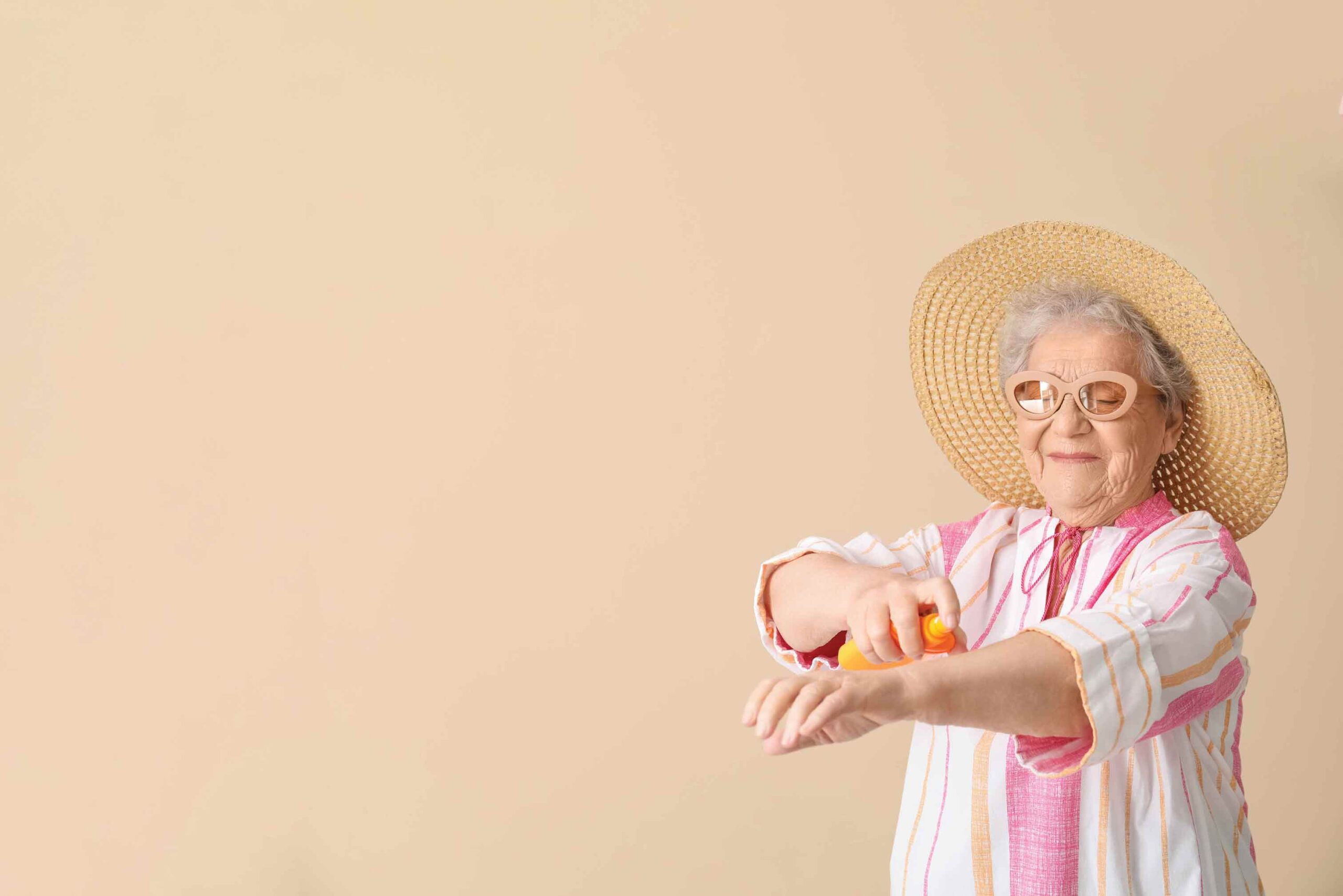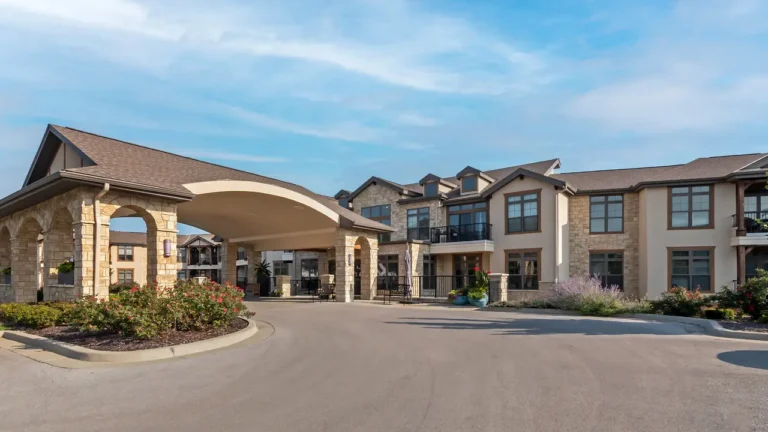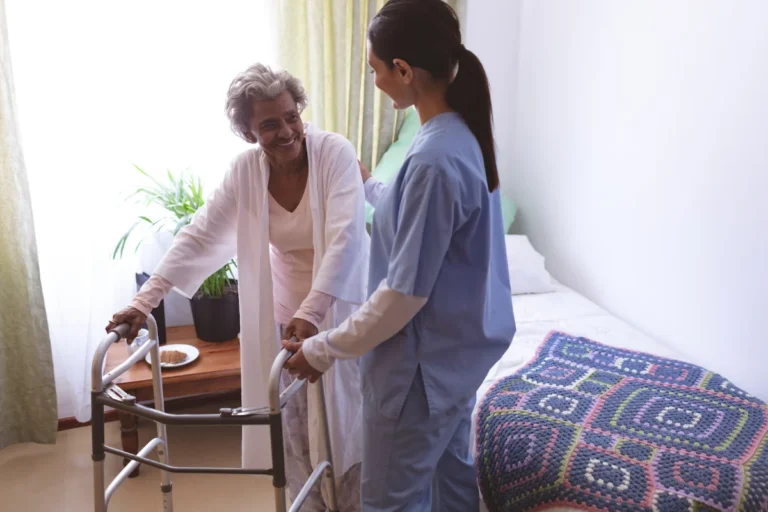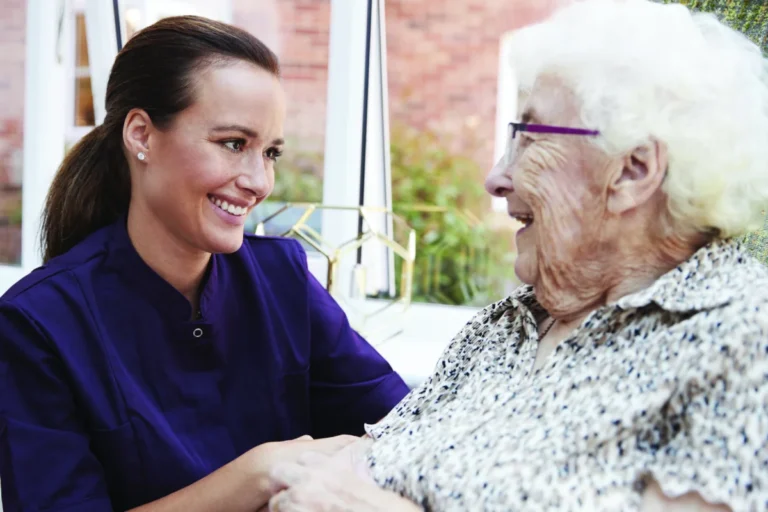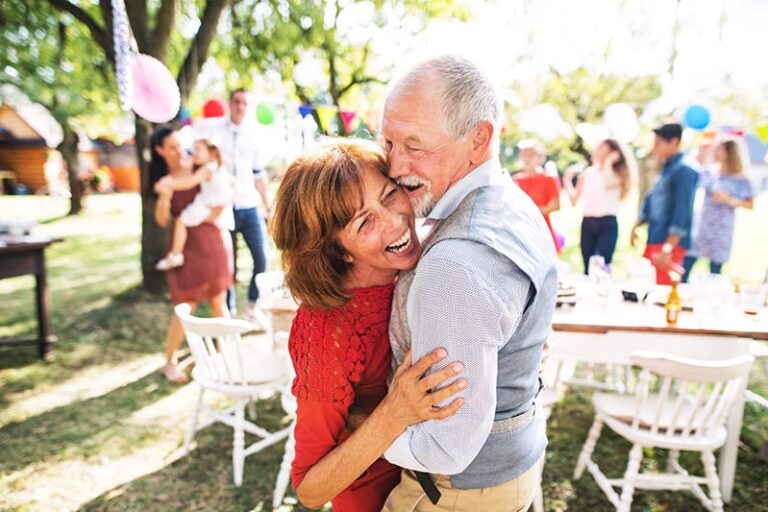Summer is in full swing, and everyone is ready for fun in the sun! Sun safety is important for all ages, but especially for senior citizens, who have different skin needs than younger generations.
It is estimated that one in five Americans will be diagnosed with skin cancer by age 70. While most squamous and basal cell carcinomas appear after age 50, having five or more sunburns can double the risk of developing melanoma. And in recent years, the number of people over the age of 65 with some form of skin cancer has increased.
So, is there a connection between skin cancer and age? Here are a few facts that may explain the correlation:
- The increasing number of skin cancer cases in seniors may be due to improved screening and patient education efforts.
- Some medications seniors take may increase sensitivity to the sun, which also increases the risk of skin cancer from sunburn.
- Time in the sunshine is often encouraged for seniors. Spending time in the sun may help to reduce the risk of developing heart disease and diabetes. Additionally, exposure to sunlight stimulates the skin to manufacture vitamin D, and seniors are more likely to have a vitamin D deficiency due to the natural aging process.
- Many seniors move to sunnier climates for retirement, vastly increasing UV light exposure. UV light suppresses the immune system, exacerbating the natural decline in immune function and increasing the risk of developing skin cancer.
As we grow older, it is important to understand the dangers of sun exposure, the effects of aging on our skin, ways to maintain skin health and when to seek assistance to protect our skin.
UV Light and Aging Skin
The sun’s rays can take a toll on the skin’s health, ranging from sunburns to serious medical conditions, including skin cancer. When the sun prematurely ages the skin, it is often referred to as photoaging, sun damage or solar damage. Sun damage occurs when ultraviolet (UV) light hits unprotected skin and causes cellular skin changes.
UV light is part of the sun’s natural energy. UV light has a shorter wavelength than visible light, so human eyes cannot detect UV light, but the skin can feel it. Two types of UV light are proven to contribute to the risk of skin cancer:
- Ultraviolet A (UVA) has a longer wavelength and is connected with skin aging.
- Ultraviolet B (UVB) has a shorter wavelength and is connected with skin staining or sunburns.
While these types of UV light differ in how they affect human skin, they both can do harm. UV light damaging the skin cells can lead to skin cancer and premature aging. UV light can also damage the eyes, causing conditions like cataracts and eyelid cancer.
Because sun damage happens in the skin’s deepest layers, known as the dermis, it can take years before the damage is visible as a mole or blemish. Whether a blemish is a sunspot or skin cancer, only a dermatologist can determine.
Safe Ways to Spend Time Outdoors
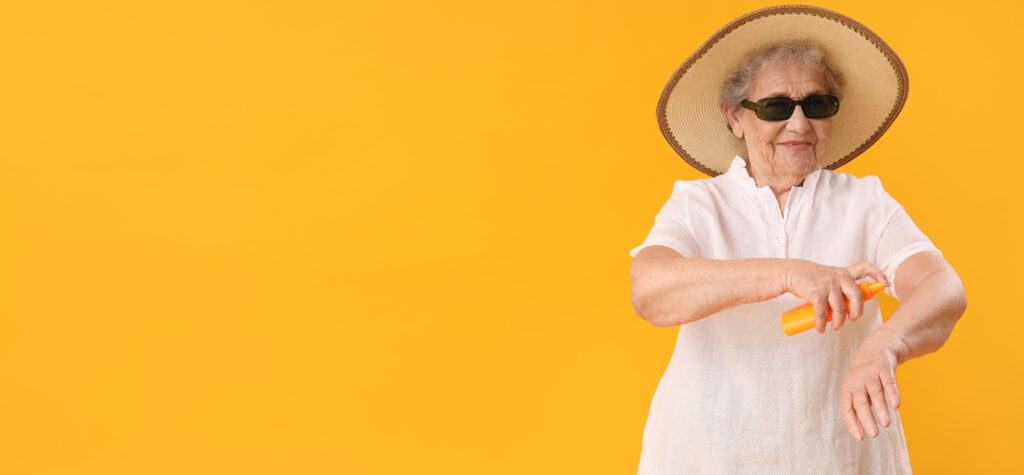
Making time for sun safety is important no matter your age. Once the science of UV light and the risks of sun exposure are understood, it is much easier to take steps to enjoy time outdoors safely! Here are some tips for seniors and caregivers to have the best, safest summer ever:
Dress to protect your skin.
Seniors have more fragile skin than younger people, so wearing sun-protective clothing is a must. Wear long sleeves that cover arms and pants that cover legs. Add a wide-brimmed sun-protection hat for the face, and you have the perfect outfit for sun safety!
Assemble a sun safety kit.
Even on a cloudy day, the sun can still damage the skin. Wear sunscreen outside every time, even if the time outdoors is brief. Most experts suggest using a sunscreen with a sun protectant factor (SPF) of 30 or higher. It is also important to reapply sunscreen throughout the day to maximize benefits.
Drink plenty of water.
Spending time out in the heat triggers a sweat response, and while sweating may help you feel cool, it can also cause dehydration. Drinking water is the best way to prevent dehydration, so keep water close by, and sip it often.
Stay alert.
Seniors frequently feel cold and may want to sit in the sun to keep warm. This is not recommended. Older adults should avoid going out during the hottest parts of the day to avoid overheating.
Additionally, seniors may not get sweaty or red in the face due to sun overexposure. Check in with your senior loved ones to see how they are feeling, and take them in immediately if they feel light-headed or nauseous.
Seek treatment quickly.
If you do get a sunburn, apply products for sun-damaged skin and moisturize daily. If it happens infrequently, the risk of skin cancer from sunburn is moderately low, but the more sunburns you have, the higher your risk.
Skin Care Tips for Seniors
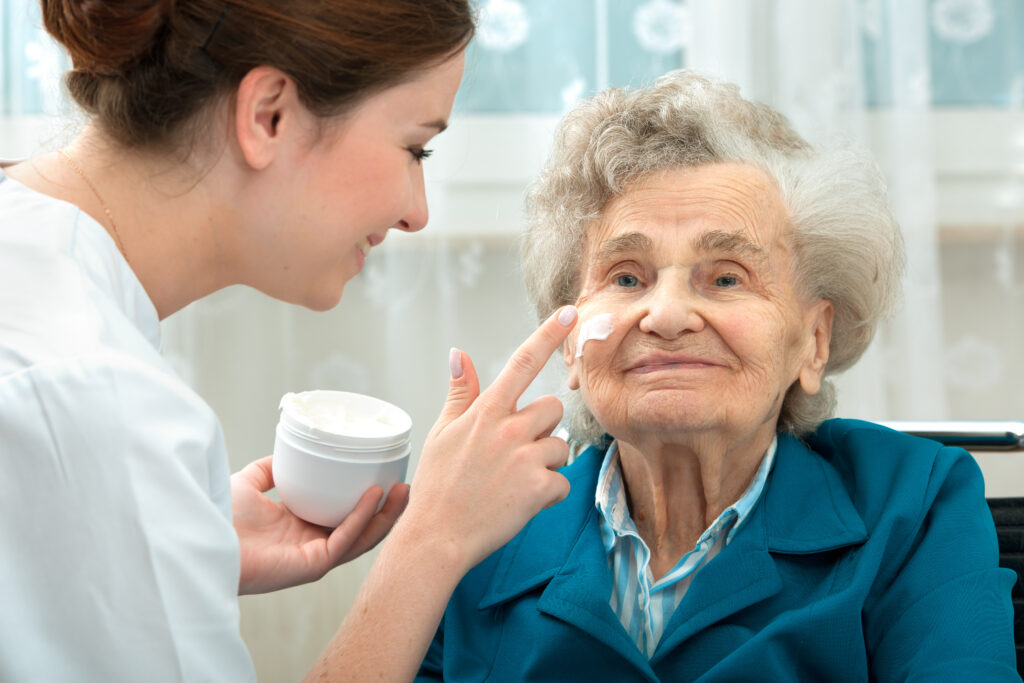
Skin care and sun safety is a part of overall health and should be a daily consideration at any age. Anyone can take steps to improve skin health, ensure safe sun exposure and stay tuned in to any warning signs that skin problems may be developing. Here are a few skin to-dos that can keep skin health on the right track:
- Protect skin from UV light each and every day
- Quit smoking
- Eat a healthy, nutritious diet
- Reduce alcohol consumption
- Exercise several days a week to improve circulation
- Use gentle skin products and wash skin after heavy sweating
- Use sunscreen for older skin
- Get plenty of sleep
- Stay hydrated
At any age, a worrying sunspot, a mole changing size or color or an abrasion that will not heal is worth a trip to the dermatologist. When it is found early, skin cancer can be highly treatable. Visiting a dermatologist once a year is recommended.
About Tutera Senior Living & Health Care
At Tutera Senior Living & Health Care, each community is specifically designed to meet the needs of the residents. We offer independent living, assisted living, rehabilitation and memory care. Every community offers support, security and opportunities for residents and their families. All our residents are treated as individuals, and their needs, goals and health are prioritized.
Interested in finding a Tutera Senior Living community near you? We have a community location finder to help you do just that! Or you can call us anytime at 877-988-8372 to ask questions, learn more about our care programs or schedule a tour.

